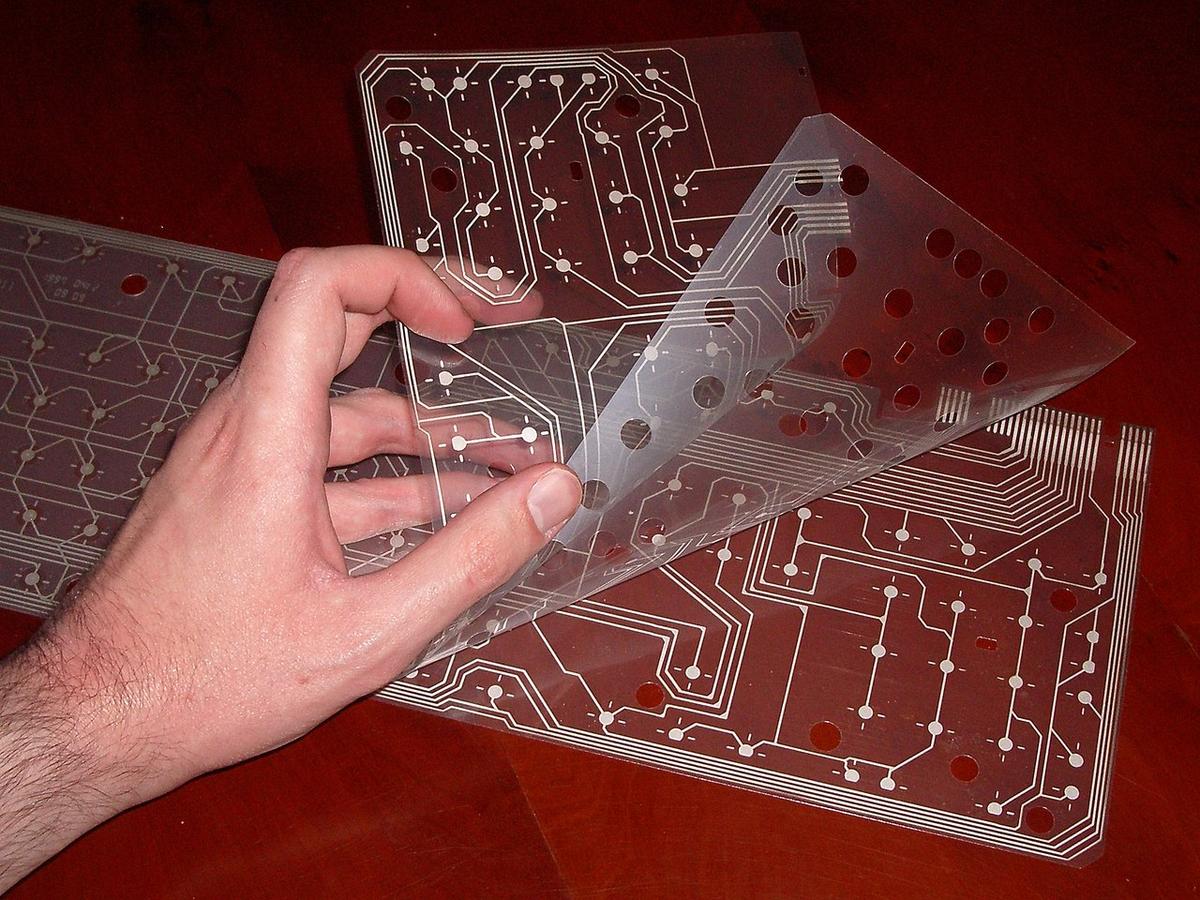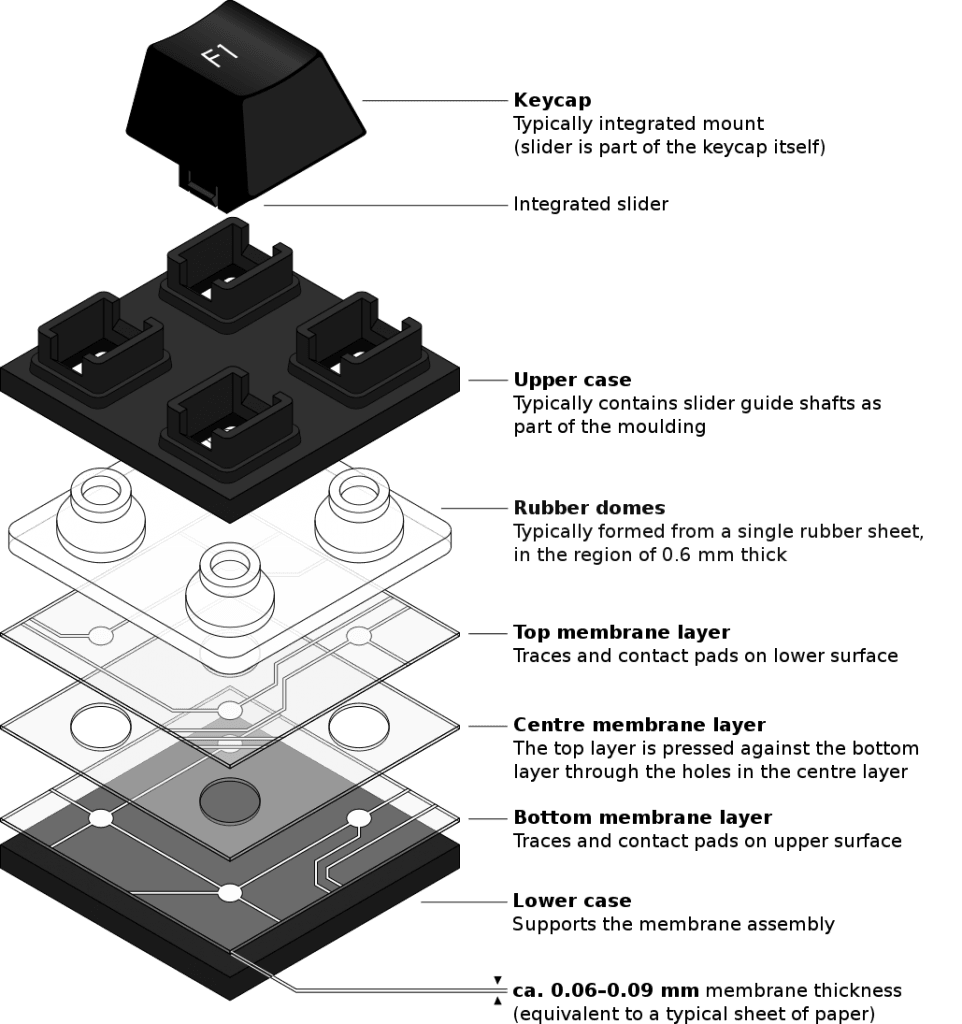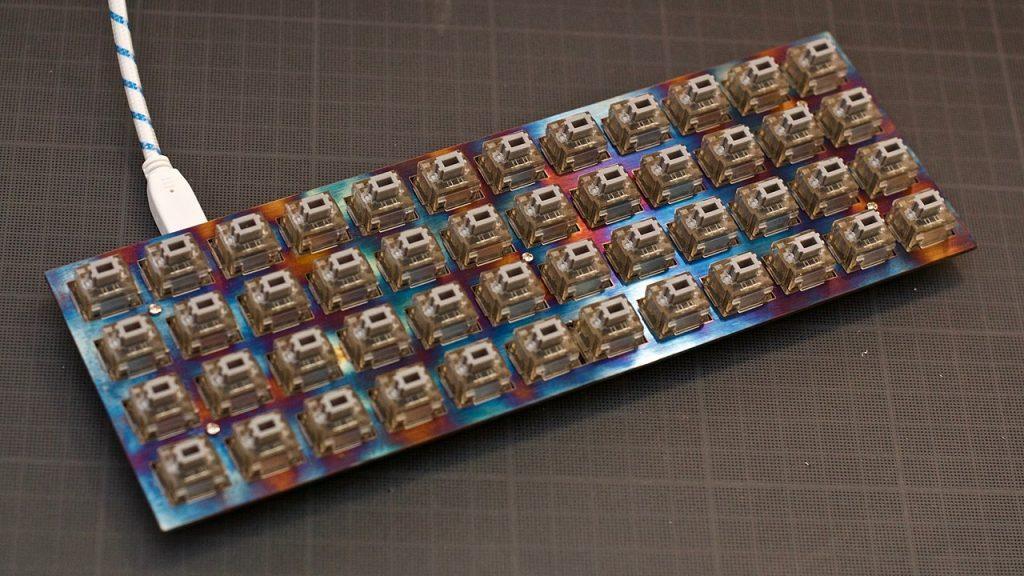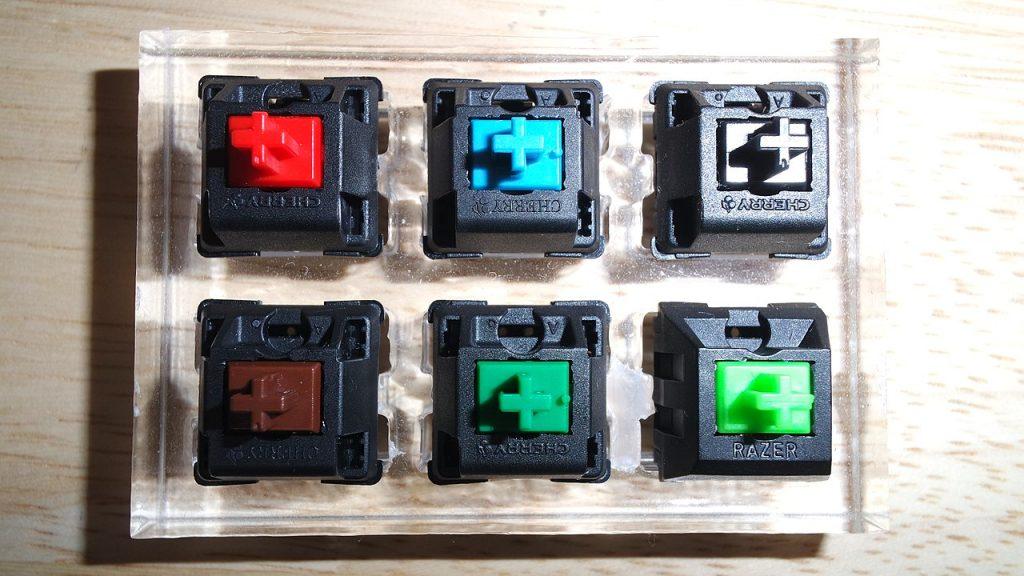Mechanical vs Membrane Keyboard: What’s the Difference?
When choosing a suitable keyboard, you will come across two fundamentally different types: Membrane and mechanical models. But what exactly are the differences between membrane and mechanical keyboards? Are there special advantages or disadvantages for both keyboard types? And are membranes or mechanicals better for gaming? We will answer these questions in this article so that you can make the right decision when buying.
Rubber dome vs Membrane: Where are the Differences?
The terms membrane keyboard and rubber dome keyboard are often used interchangeably, as most modern keyboards combine both technologies. However, the two concepts are different and some keyboards use one and not the other. Although nowadays virtually all keyboards use a combination of rubber dome and membrane, we’d still like to briefly explain the difference.
Membrane Keyboards
Pure membrane keyboards use three different layers in their design, which are very flexible. The first layer is called the top membrane layer and is connected to the actual keys, with a conductive path underneath.

When a key is pressed, it moves through the second layer , which consists of holes. Under each key there are small pressure pads, which are now pressed through these holes. As a result, they come into contact with the conductive tracks underneath on the lower membrane layer and trigger an input.
Rubber dome Concept
Rubber dome keyboards use the same switching technology as membrane keyboards. Here, too, the same basic design applies: a single layer of silicone or rubber is divided into different pressure sensitivity zones.

However, most membrane keyboards today are equipped with a rubber dome, which brings better tactility and an improvement in responsiveness.
The upper membrane layer is equipped with rubber domes for each individual key and looks like a rubber mat with nubs. When a key is at rest and not pressed, the circuit is open and flows into the lower membrane layer. When a key is pressed down, the rubber dome presses on the lower layer. This closes the circuit at the contact point that ultimately registers the key press.
Rubber dome switches are now the most commonly used switch technology in keyboards.
Mechanical Keyboards
Now that we know the counterpart, let’s take a quick look at what makes mechanical keyboards tick.
Mechanical keyboards came onto the market in the late 80s. Because they brought the typing feel of a typewriter with tactile feedback and audible strokes, they became increasingly popular. Nowadays, most gamers will tell you that a mechanical keyboard is a must-have. Especially for gamers and frequent typists, they remain the preferred choice compared to membranes.
How does a Mechanical Keyboard work?
The main difference between mechanical keyboards and membranes lies in the triggering and registration of a keystroke. In contrast to rubber dome or membrane, there are pressure springs and small switches under each key.

The characteristic of mechanical keyboards is the switch. With membranes there is only one kind of pressure feeling, but with mechanical models there are a lot of different switches, which influence this strongly.
For example, when a key is pressed, there is sometimes an audible sound and a physically discernible click, commonly referred to as the switch point. With several variations of mechanical keyboard switches available, you also have a lot more to decide on than with membrane keyboards.
Different Switches for Mechanical Keyboards
As mentioned, there are some differences in mechanical switches. Thus, not every mechanical keyboard has the same characteristics, but differs again in typing and gaming feel depending on the switch type. The three main types are:
- Linear (no resistance and smooth)
- Tactile (slight resistance and perceptible switching point)
- Clicking (audible and perceptible resistance when the key is pressed)

The differences in the switches are primarily related to the intended use of the keyboard. These are the switches from CHERRY:
- MX Blue: This switch type is best suited for office work, since the keys have the longest lifespan and these are already triggered from an impression of 2mm. In addition, the keys give a clear feedback when the keys are pressed, which makes them especially suitable for frequent typists.
- MX Red: This switch type is especially popular among gamers, since the keys can be triggered easily without much effort.
- MX Brown: The MX Browns are most similar to the MX Blue. The only small difference is in the amount of pressure that has to be applied when hitting the keys. This is minimally lower on the MX Brown, which also makes the keys a bit quieter than the MX Blue.
- MX Black: In contrast to the other three types, these are rather difficult to release, which makes them particularly suitable for users who place great value on accuracy.
- MX Speed Silver: The MX Speed Silver switches are currently the fastest mechanical switches. The high switching frequencies are made possible by a low trigger force, a switching travel of only 1.2 millimeters and a linear switching characteristic without audible feedback. This allows the MX Speed Silver to be triggered up to 40 percent faster than other MX switches. This is ideal for gamers, frequent and fast typists, whose requirements include fast input.
- MX Silent: Mechanical keyboards are clearly audible during operation, which is very annoying for some people. That’s why CHERRY has developed its MX switches and launched a silent version that features noise damping. This will result in a quite mechanical keyboard.
Superficially, this description is enough for now to understand that mechanical keyboards differ significantly from membrane keyboards.
Coming back to our question: Which is better, membrane or mechanical keyboard? Let’s take a closer look at the advantages and disadvantages.
Mechanical vs Membrane: Advantages and Disadvantages
Depending on how you plan to use your new keyboard, you should consider some of the pros and cons of both keyboard types. After all, certain scenarios and uses will affect your gaming experience or typing efficiency.
For example, consider whether you want to use your keyboard for general use, for professional use with high typing volume, or purely for gaming.
Advantages and Disadvantages of Mechanical Keyboards
To determine if a mechanical keyboard is right for you, take a look at the pros and cons:
- They are more stable and live longer: Some modern models already have switches that last over 100 million strokes. On average, you’ll get at least 50 million strokes for each switch before you have to replace anything. In addition, mechanical keyboards are much tougher than membrane keyboards due to their construction. This is usually accompanied by a higher weight in direct comparison, which means that they lie more firmly on the desk and can’t be easily moved.
- Keys are triggered faster and more precisely: Probably the argument par excellence for gamers but also for frequent typists. Due to their mechanical construction, keystrokes are registered more quickly and are easier to handle due to less resistance. With membrane keyboards, you will have more typos and need more force to release keys, since you usually have to press them all the way down.
- Customizability by replacing the keycaps: Since the keycaps on mechanical keyboards can be easily peeled off, you can replace them individually with unique ones. This allows you to create your very own creations and give your keyboard a unique look. This also means easier cleaning and repair, especially since you don’t have to unscrew everything and remove rubber mats like with membrane keyboards.
- Simultaneous keystrokes are easier: If you’re a gamer, this is a definite plus. While a membrane keyboard can often run into problems when pressing multiple keys at once, you’ll virtually never run into this problem with mechanical keyboards. This is because functions like anti-ghosting are usually limited to a few keys on membrane keyboards, whereas this often applies to all keys on mechanical models.
- The typing feel is unique: you have to use a mechanical keyboard once yourself to understand this point. While a membrane keyboard feels spongy when you press keys, you’ll simply get a smoother feel with mechanical keyboards.
- The price: In a direct comparison, mechanical keyboards are usually more expensive than their rubber brethren. However, due to the more complicated manufacturing process and longer lifespan, this is understandable.
- The noise: Yes, mechanical keyboards are definitely louder than membrane keyboards. For some this is a plus, for some a negative.
- The agony of choice: Both a curse and a blessing is the sheer endless choice of switches. You often have to read up before you can really make up your mind. Still, there are only three main types of switches.
Advantages and Disadvantages of Membrane Keyboards
Even with a membrane keyboard, there is light and shade. Let’s take a closer look at where it scores and where it falls short:
- They are cheaper: One of the main advantages of membrane keyboards is the cheaper price. You often get more features for a lower or the same price here.
- Noise level of membrane keyboards: While fast typing on any keyboard can be loud, rubber keyboards have a better reputation when it comes to volume. Some mechanical keyboards can be annoyingly loud.
- The feel: Although a membrane keyboard will always be quieter on average, it loses this advantage with a squishy typing feel. You will understand exactly what we mean when you have had both variants under your fingers.
- Precision & reliability: Precision goes hand in hand with the previous point. Due to the way membrane keyboards work, you will need more force to release a key on most models. This means that you will often unintentionally not activate keys, which can be very annoying and sometimes even fatal when gaming and typing. However, there are already good modern membrane keyboards, which have a much shorter travel.
- Durability and construction: A classic membrane keyboard will never last you as long as a mechanical keyboard. With many membrane keyboards, you’ll only get a lifespan of up to 20 million keystrokes, with some even only 5 million. Nevertheless, they are on average lighter than mechanically based ones, which makes them more suitable for taking along on LANs or for travel.
- Splash and dust protection: With many good membrane keyboards, you’ll get special water and dirt protection to IP42 protection standards. This makes many membrane models virtually waterproof and less susceptible to spills.
- Customizability and repair: Pulling off keycaps is also possible here, but it is far more fiddly. In addition, rubber dome switches use a number of different keycap attachment methods. Therefore, it is often very difficult to find suitable replacement keycaps.
- Anti-ghosting: Although many membrane keyboards already have full N-key rollover anti-ghosting, you can often only find cut-down variants. Due to the construction, this rarely or never happens with mechanical models.
FAQs for Mechanical vs Membrane Keyboard
How does the typing feel differ between a Mechanical and Membrane Keyboard?
Compared to a mechanical keyboard, the pressure feeling of membrane keyboards is much more spongy and imprecise due to the rubber technology used. In addition, many customers complain that typing feels more uncomfortable after a longer time than with a mechanical keyboard. The springs used in the mechanical switches ensure that the keys are much easier to operate and that they can be pressed with much less force, which makes typing seem more comfortable and precise.
Membrane or Mechanical Keyboard for Gaming?
When it comes to gaming, a mechanical keyboard is undoubtedly the right choice. With better speed, accuracy, and durability, a mechanical keyboard can handle the high intensity of use that comes with passionate gaming.
Although you can, of course, also game well with a membrane keyboard, you’ll find that your performance is affected by the longer response time.
Membrane or Mechanical Keyboard for Typing?
If you’re looking for a simple keyboard for general home or office use and don’t need any bells and whistles, then a membrane keyboard will do just fine. Also, membrane keyboards are the best option if you want the best value.
However, if you type a lot for work or private use, then mechanical keyboards are more interesting for you. Especially for programmers, journalists or bloggers, they come into question because of the better efficiency. You can even opt for quieter silent switches, if the keyboard is used in a room with other people.